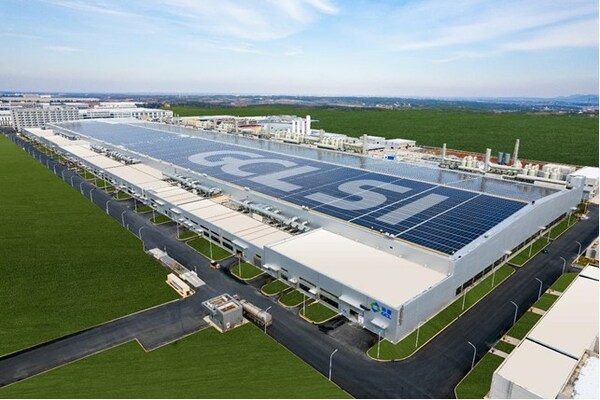
Newswire
PR Newswire - GCL SI's Net Profit Soars by 142.24% in 2023, Ranking Among Industry's Top Ten in Production and Sales
SUZHOU, China, April 30, 2024 /PRNewswire/ -- GCL System Integration Technology Co Ltd (GCL SI) (Shenzhen:002506) disclosed its financial results for the fiscal year ended December 31, 2023, in a press release issued after market close on April 26th. The company's revenue reported a year-on-year increase of 91.15% to approx. 2.20 billion dollars. Additionally, net profit attributable to shareholders rose 142.24% year-on-year to approx. 21.76 million dollars. Besides operational performance, the company demonstrated industry leadership through its advanced production capacity, efficiency in lean production, and increased market share.
GCL SI Wuhu Cell Facility
In 2023, GCL SI continued its strategic focus on expanding production capabilities, specifically in large-scale modules and N-type cells. The strategic pivot contributed to a robust increase in both domestic and international sales. Shipment volume reached 16.42GW for the year, enabling GCL SI to re-enter the roster of the top 10 industry leaders.
Notably, the first-quarter report of 2024, released concurrently, revealed that GCL SI maintained its robust growth. The company's operating income surged 89.97% year-on-year to approx. 407.1 million dollars. Furthermore, net profit attributable to shareholders rose to 3.36 million dollars, demonstrating sustained profitability amidst escalating competition within the industry.
As of the end of the reporting period, GCL SI had established an impressive production capacity of nearly 30GW high-efficiency modules. Specifically, the Hefei manufacturing facility has enhanced its equipment performance, ensuring compatibility with the TOPCon module production process and complete alignment with N-type technology trends. Additionally, the company's Funing facility commenced operations with a 12GW high-efficiency, large-size module production capacity in November 2023.
In 2023, GCL SI initiated the construction of a new 20GW (Phase I: 10GW) N-type TOPCon cell plant in Wuhu. The investment underscores the company's commitment to expanding production scale and strengthening the supply chain through its expertise in N-type TOPCon cells.
The Wuhu facility capitalized on a strategic opportunity to incorporate the world's most sophisticated automated cell production equipment and a smart factory design plan. Remarkably, the project was completed and operational within just five months. From the moment the first cell rolled off the production line, it took only 48 days to ramp up to the full 10GW capacity across all 20 lines. By the end of 2023, the facility had attained full production capacity, a testament to GCL's ability to act quickly on its strategy roadmap.
Moreover, to leverage the low-carbon benefits of its module products, GCL SI initiated a carbon data management project during the reporting period. Based on digital blockchain technology, the GCL carbon data platform is designed to disclose and certify the carbon footprint, product performance, and compliance documentation of GCL's offerings. The platform ensures that data concerning the firm's materials and products is traceable, verifiable, reliable, and tamper-proof. By establishing a comprehensive digital platform for tracking carbon emissions, the company aims to empower and drive the sustainable growth of the photovoltaic industry.
Concurrently, GCL SI unveiled the 2023 Annual Sustainability Report titled "NEXT Foresight", centering on the company's efforts in scientific carbon management, technological innovation, and resilience. The comprehensive report also details GCL SI's progress in environmental, social, and governance (ESG), underscoring the company's dedication to meeting its science-based carbon reduction targets.
For 2024, GCL SI plans to continue refining its production capacity to reduce manufacturing costs for PV modules, boosting the competitiveness of its offerings. The goal is to increase operating income by over 50%. The firm will further increase its investment in R&D, establishing a dedicated R&D center for cell modules. By constructing an independent, multi-functional R&D and pilot production line, this facility will concentrate on the development of new products and technologies, the validation of mass production, the integration of AI-driven intelligent control systems, and the provision of technical services.




 ภาษาไทย
ภาษาไทย English
English
Comment